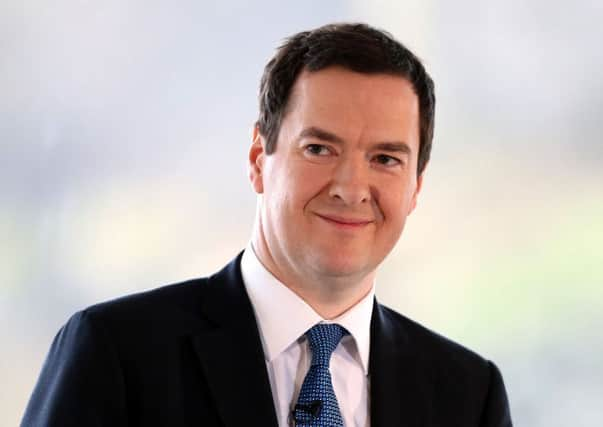Britain in deflation for first time since 1960


The Consumer Price Index (CPI) measure of inflation dipped to minus 0.1 per cent, the Office for National Statistics said.
It is the lowest level on record and comes after two previous months of zero inflation. Estimates of past CPI rates suggest it was last negative, at minus 0.6 per cent, when Harold Macmillan was prime minister in 1960.
Advertisement
Hide AdAdvertisement
Hide AdThe latest figure – hailed by the Chancellor George Osborne as “good news for family budgets” – is in line with projections by the Bank of England. Economists expect it to bounce back to a positive number for May rather than heralding a persistent spiral of falling prices.
Bank governor Mark Carney stressed last week that a temporary period of negative CPI should not be mistaken for a damaging episode of “deflation”.
But the Trades Union Congress said it could be the “canary in the mine” signalling there was something awry with the recovery.
Sterling fell a cent against the dollar as the fall in inflation cemented expectations that the Bank will not be raising interest rates until well into next year.
Mr Osborne said: “Today we see good news for family budgets with prices lower than they were a year ago. As the governor of the Bank of England said only last week, we should not mistake this for damaging deflation.
“Instead we should welcome the positive effects that lower food and energy prices bring for households at a time when wages are rising strongly, unemployment is falling and the economy is growing.
“Of course, we have to remain vigilant to deflationary risks and our system is well equipped to deal with them, should they arise.”
The Bank said last week it expected inflation to fall below zero before picking up “notably” towards the end of the year as the effect of lower oil and food prices, due to a supermarket price war, fades.
Advertisement
Hide AdAdvertisement
Hide AdA more persistent sequence of dropping prices might have unwelcome consequences, such as households and businesses delaying spending and investment.
Mr Carney has said the Bank could cut rates to stave off this threat. The new figures also showed “core” inflation, excluding the volatile effects of energy, food, alcohol and tobacco, was also subdued. At 0.8 per cent in April, it was at its lowest level since March 2001.
Food prices fell 3 per cent year-on-year in April, an unprecedented fourth month of deflation at about that level.
Fuel prices rose on the month, with a litre of petrol 2p dearer than in March, meaning its downward pull on the year-on-year rate was smaller than before. But the timing of Easter dragged down CPI as air and sea fare rises in April were much lower than last year.
Markit chief economist Chris Williamson said: “Deflation has hit the UK, but looks unlikely to stay for long. The lack of inflation is a boon for consumers, acting as a welcome surrogate for wage growth which remains subdued.
“Alongside falling unemployment, low prices, especially for fuel, have boosted consumer spending, which is providing the main thrust to economic growth at the moment.”